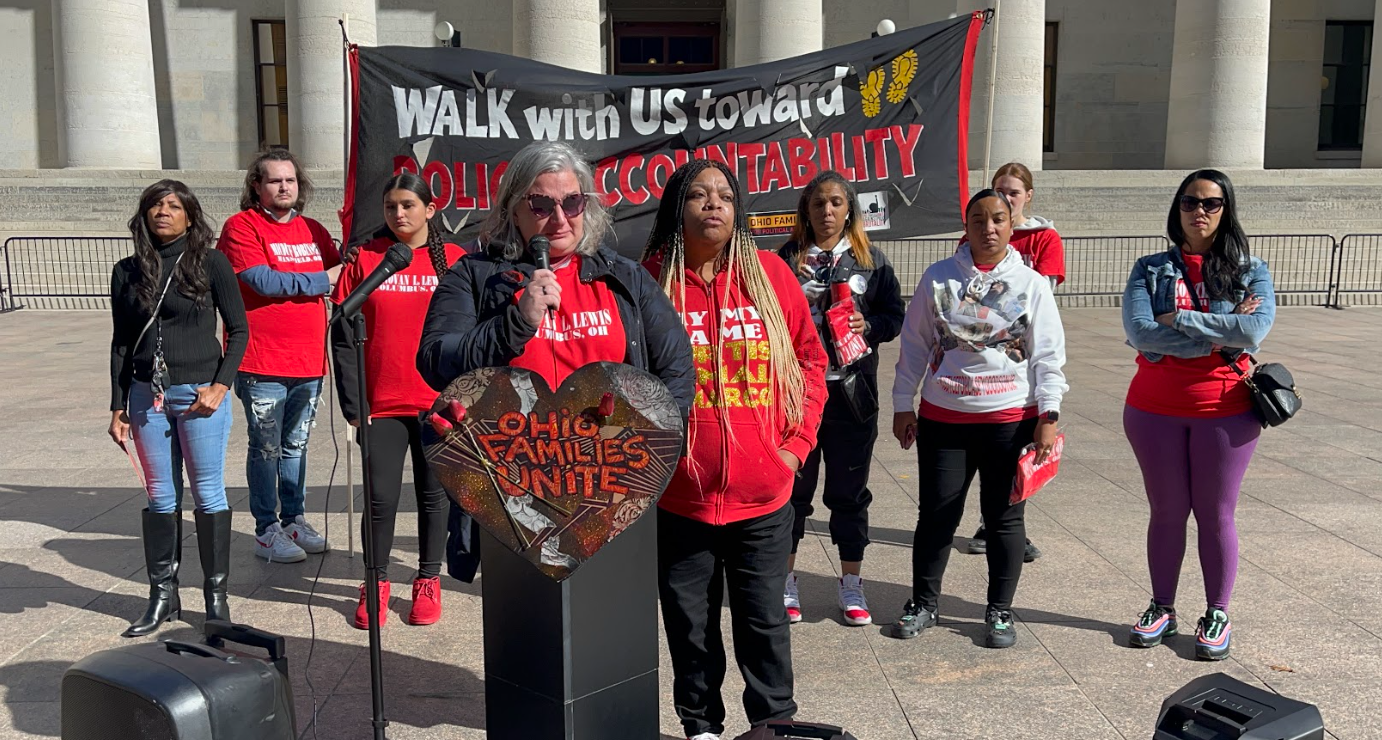Ohio’s Statewide Police Reform Policy Table
Together, we educate, we organize, we mobilize, and we build an Ohio that works for us all.

Ohio’s Statewide Police Reform Policy Table
Together, we educate, we organize, we mobilize, and we build an Ohio that works for us all.
View our policy priorities:
-
Mandatory drug and alcohol testing of officer(s) after any use of force
The Ohio Attorney General’s office and any local Prosecutor’s Office must notify the immediate family of a victim of police violence about any public release of information or any press statements before the publication of that release
Implement community review boards at a local level to provide oversight for policing
Remove “interaction with law enforcement” restrictions from the Ohio Crime Victims Fund
-
Low-priority, non-violent 911 calls must receive an alternative response, to be determined by the 911 dispatcher based on locally available responders
Fully fund and train dispatch departments statewide to support only deploying officers for actual suspected crimes
Fully fund county efforts and other municipal efforts to increase mobile crisis response, mediation responders, mental health clinical response, and other alternative response program types
Remove collateral sanctions from peer responder certification eligibility
Create sustainable, reliable funding streams for Community Violence Interrupters and community-based violence prevention programming
Create sustainable, reliable funding streams for school-based violence interruption programming and school psychologists
-
End qualified immunity for police officers and replace it with mandatory licensing and insurance covering their professional activities
Mandate that professional insurance coverage for police officers be revoked for any officer terminated because of their actions in any officer-involved shooting so that that officer is no longer eligible to work as a police officer in the state of Ohio
Adopt and standardize specific policies restricting the use of deadly force. Officers shall not shoot their firearm:
If a community member is unarmed
If a community member is running away or trying to withdraw
If a community member is driving away or sitting in a parked car
If a community member is not armed with anything that could pose a threat including knives, screwdrivers, etc
If the officer is alone
All use-of-force complaints must be reviewed by the local community review board. Officers who have a complaint of excessive force must be furloughed (unpaid) until the complaint is resolved via a partnership with the impacted family or community members, the county prosecutor, and the representatives of that officer
Disciplinary records of police officers must be searchable and accessible public records
-
Professional minimum training hours increased to 80 hours of training annually, with a minimum curriculum to include: implicit bias training, and de-escalation training
Create designated statewide funding for mental health support programming for all first responders, and strengthen mental health programming already available to police officers
Standardize that police departments cannot use black targets for target practice
Take Action Today
Join our movement for justice, equality, and safer communities. Take action now to support our campaigns and empower those directly impacted by unjust policing. Together, we can drive real solutions and create lasting change.
More about our coalition:
We are led by Ohio families directly impacted by police brutality
and supported by a broad and beautiful coalition of organizations.









